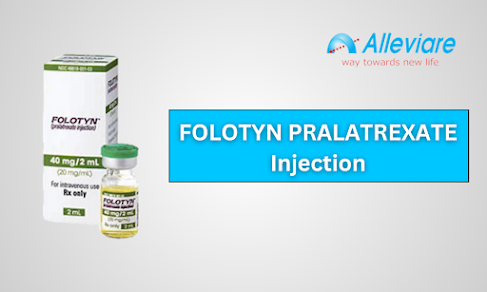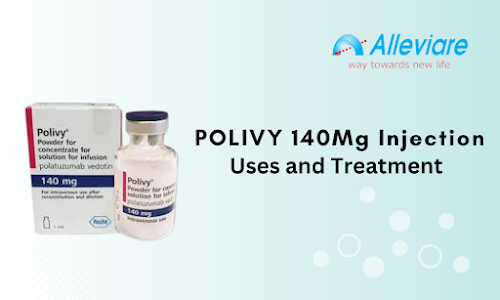FOLOTYN (PRALATREXATE) INJECTION Treatment and Uses
When it comes to battling cancer, medical advancements
continue to provide hope for patients worldwide. Among the innovative
treatments making a difference is FOLOTYN (pralatrexate) injection, a
medication approved by the U.S. Food and Drug Administration (FDA) for specific
types of lymphoma. This blog explores the features, benefits, and applications
of FOLOTYN, shedding light on its role in the fight against cancer.
Understanding FOLOTYN:
FOLOTYN is a chemotherapy drug classified as an antifolate,
which means it interferes with the growth and division of cancer cells.
Pralatrexate, the active ingredient in FOLOTYN, works by inhibiting an enzyme
called dihydrofolate reductase, which is essential for DNA synthesis in rapidly
dividing cells. By targeting cancer cells that divide quickly, FOLOTYN helps to
slow down or even halt the progression of cancer.
Approved Uses:
FOLOTYN is primarily used in the treatment of two specific
types of lymphoma: peripheral T-cell lymphoma (PTCL) and relapsed or refractory
cutaneous T-cell lymphoma (CTCL). These are relatively rare forms of lymphoma,
accounting for approximately 10% of all non-Hodgkin's lymphomas. They are known
for their aggressive nature and resistance to traditional treatments, making
the availability of FOLOTYN a significant breakthrough.
Peripheral T-Cell Lymphoma (PTCL):
PTCL is a diverse group of aggressive lymphomas that affect
T-cells, a type of white blood cell responsible for the immune system's defense
mechanisms. FOLOTYN is indicated for patients with relapsed or refractory PTCL
who have failed prior treatment, offering an additional option for those who
have exhausted standard therapies. By specifically targeting T-cells, FOLOTYN
shows promise in managing this challenging type of lymphoma.
Relapsed or Refractory Cutaneous T-Cell Lymphoma (CTCL):
CTCL is a form of lymphoma that primarily affects the skin,
resulting in symptoms like rashes, plaques, and tumors. FOLOTYN is approved for
the treatment of CTCL in patients who have not responded to other systemic
therapies or experienced disease progression. By selectively targeting
cancerous skin cells, FOLOTYN offers an alternative for individuals with
refractory CTCL, potentially improving their quality of life and extending
survival rates.
Administration and Side Effects:
FOLOTYN is administered as an intravenous (IV) infusion,
usually in a clinic or hospital setting under the supervision of healthcare
professionals experienced in chemotherapy administration. The dosage and
frequency of treatment depend on various factors, including the patient's
overall health, response to therapy, and specific type and stage of lymphoma.
Like any medication, FOLOTYN may cause side effects.
Commonly reported side effects include fatigue, nausea, vomiting, loss of
appetite, mucositis (inflammation of the lining of the mouth and digestive
tract), and low blood cell counts. Healthcare providers closely monitor
patients receiving FOLOTYN to manage and alleviate these side effects whenever
possible.
AlleviareIndia is a Pharmaceuticals Consulting Company that will assist you in buying FOLOTYN (PRALATREXATE) INJECTION in India. Get price of FOLOTYN (PRALATREXATE) INJECTION in India.
Conclusion:
FOLOTYN (pralatrexate) injection has emerged as a promising treatment option for patients with relapsed or refractory peripheral T-cell lymphoma and cutaneous T-cell lymphoma. By specifically targeting cancer cells, FOLOTYN offers renewed hope for individuals who have exhausted standard therapies and faced limited treatment options in the past. It is essential to consult with healthcare professionals to determine if FOLOTYN is suitable for your specific condition. They can guide you through the treatment process, monitor your progress, and provide supportive care to minimize any potential side effects.



Comments
Post a Comment